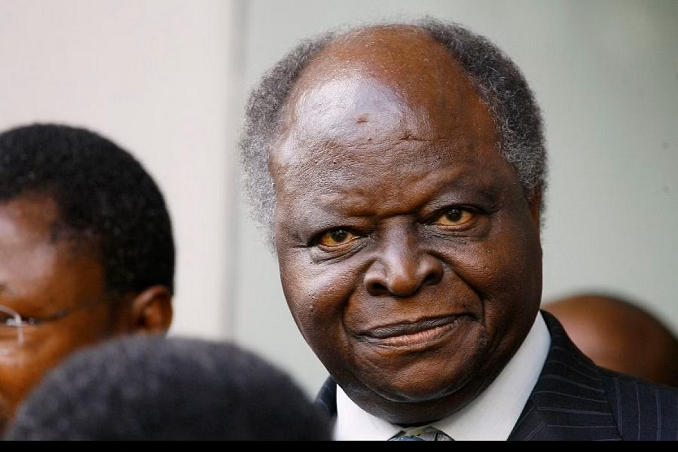Last updated on April 23rd, 2022 at 08:33 am
Kenya has been in mourning since President Uhuru Kenyatta told the world that his predecessor, former President Mwai Kibaki, had died on Friday (April 22).
According to widely known information, the statesman’s real name is Emilio Stanley Mwai Kibaki, and he was born in Gatuyaini, Kenya, near the town of Othaya, where he grew up. He attended Gatuyaini School for two years, Karima Mission School and Karima Missionary School for three years, and Mathari Boarding Primary School for two years (between 1944 and 1946).
Then, fast forward to the pursuit of higher education. He studied economics, history, and politics at Makerere University in Kampala, Uganda. He was the president of the Kenyan Students Association at the time. He continued to learn and earned a B.Sc. in public finance from the London School of Economics. He made history as the first African to receive a First Class Honors degree from the university.
Kibaki After more than 20 years of autocratic control by Daniel Arap Moi, he was elected in 2002 on a promise to fight corruption. He had previously held a number of government positions. From 1965 through 1969, he served as the Minister of Trade and Industry. From 1970 through 1983, he served as the country’s finance minister. Between 1978 and 1988, Kibaki served as vice president of the country and as minister of the interior.
His ten years in charge were marred by scandals and the greatest political bloodshed since the country’s independence. His disputed re-election in late 2007 sparked violence between Kikuyu and Kalenjin, two of the country’s main ethnic groups, killing over 1,000 people and displacing hundreds of thousands. They have left a significant scar in Kenya’s history.
Related Posts
Regardless of these events, Kenya’s late president was able to have an impact on the country’s legal system. One of his stated priorities appears to be reforming the judicial system. President Kibaki created a committee of inquiry to probe judicial corruption after nearly a year in power. The investigations resulted in the dismissal of over 20 judges and 82 magistrates. The exercise helped to rebuild trust in the judiciary, which had been tarnished by allegations of corruption.
Some of his acquaintances, including Makerere graduates and his first Finance Minister, David Mwiraria, were entangled in the Anglo Leasing affair. President Kibaki did not intervene in the case and forced them to stand trial. In 2003, President Kibaki established the renowned Senior Counsel bar. However, in October 2008, the regulations were changed, and lawyers were invited to submit applications to be considered for membership in the distinguished society.
President Kibaki later acknowledged 15 lawyers and former LSK chairpersons, nominating them for the position of Senior Counsel. Even after it looked as if the judiciary system had begun to take shape, a second clean-up was carried out in 2011. More judges were fired as a result of failing integrity tests during this exercise.
Kenya will remember him not only for his accomplishments in the courts, but also for how the professional economist altered Kenya’s economy, particularly through the Vision2030 plan, which was adopted by his successor, Mr. Kenyatta. Mr. Kibaki retired to his rural stronghold of Nyeri, around 100 kilometers north of Nairobi, where his modest family originates from, after leaving the government in 2013. He has recently preferred his residence in Nairobi’s upscale Muthaiga area.

